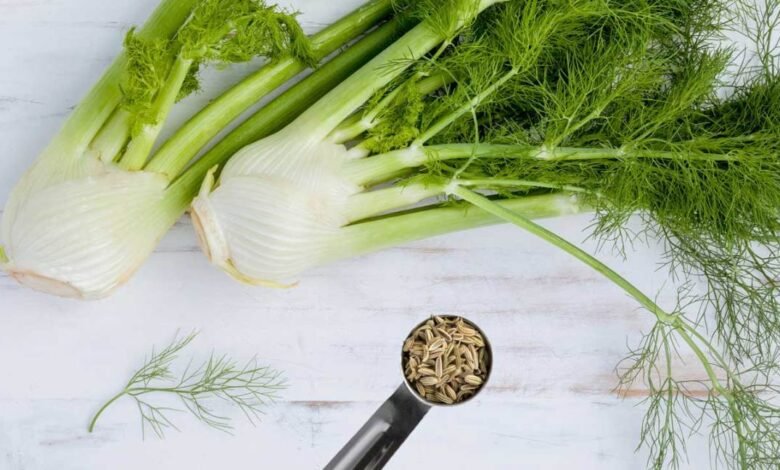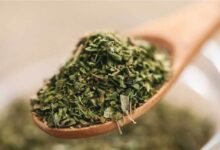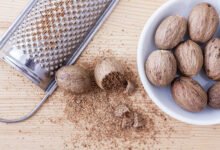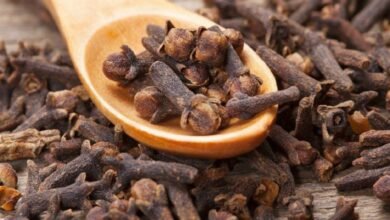3. Fennel seeds may suppress appetite
Fennel seeds may not only add depth and flavor to your recipes but also help curb appetite.
A study in 9 healthy women demonstrated that those who drank 8.5 ounces (250 ml) of tea made with 2 grams of fennel seeds before eating lunch felt significantly less hungry and consumed fewer calories during the meal than those who drank a placebo tea (11Trusted Source).
Anethole, a major component of fennel essential oil, may be behind the appetite-suppressing qualities of the plant.
That said, another study in 47 women found that those who supplemented with 300 mg of fennel extract daily for 12 weeks gained a small amount of weight, compared to a placebo group. They also did not experience reduced appetite (12Trusted Source).
Research in this area is conflicting, and more studies are needed to fully understand the potential appetite-suppressing properties of fennel.
SUMMARYFennel seeds may reduce appetite, yet current study results are conflicting. Thus, more research is needed.
4. Can benefit heart health
Eating fennel and its seeds may benefit heart health in a number of ways, as they’re packed with fiber — a nutrient shown to reduce certain heart disease risk factors like high cholesterol.
A 1-cup (87-grams) serving of raw fennel bulb packs 3 grams of fiber — 11% of the Daily Reference Value (DRV).
Diets high in fiber have been linked to a reduced risk of heart disease. A review of 22 studies associated a greater dietary fiber intake with a lower risk of heart disease. For every additional 7 grams of fiber consumed per day, heart disease risk decreased by 9% (13Trusted Source).
Fennel and its seeds also contain nutrients like magnesium, potassium, and calcium, which play important roles in keeping your heart healthy (14Trusted Source).
For example, including rich sources of potassium in your diet may help reduce high blood pressure, a risk factor for heart disease (15Trusted Source).
SUMMARYFennel and its seeds contain fiber, potassium, magnesium, and calcium — all of which are essential for good heart health.
5. May have cancer-fighting properties
The wide array of powerful plant compounds in fennel may help protect against chronic diseases, including certain cancers.
For example, anethole — one of the main active compounds in fennel seeds — has been found to exhibit cancer-fighting properties.
One test-tube study showed that anethole suppressed cell growth and induced apoptosis, or programmed cell death, in human breast cancer cells (16Trusted Source).
Another test-tube study observed that fennel extract stopped the spread of human breast cancer cells and induced cancer cell death (17Trusted Source).
Animal studies also suggest that extract from the seeds may protect against breast and liver cancer (18Trusted Source).
Although these results are promising, human studies are needed before fennel or its extract can be recommended as an alternative treatment for cancer.
SUMMARYTest-tube and animal studies have shown that fennel may have anticancer properties. However, it’s uncertain whether the same effects would be seen in humans.
6. May benefit breastfeeding women
Fennel has been shown to have galactogenic properties, meaning it helps increase milk secretion. Research suggests that specific substances found in anethole, such as dianethole and photoanethole, are responsible for the galactogenic effects of the plant (6Trusted Source).
Fennel may increase milk secretion and blood levels of prolactin — a hormone that signals the body to produce breast milk (20Trusted Source).
However, other studies found no effect on milk secretion or infant weight gain. Negative side effects, such as poor weight gain and difficulty feeding, have also been reported in infants whose mothers drank lactation teas containing fennel (21Trusted Source, 22Trusted Source, 23Trusted Source).
For these reasons, breastfeeding women should consult their healthcare provider before using fennel to stimulate milk production.
SUMMARYSome studies suggest that fennel may increase milk secretion and weight gain in breastfeeding infants, yet other studies have shown no benefit.
7–10. Other potential benefits
Aside from the benefits mentioned above, fennel and its seeds may improve your health in the following ways:
- May have antibacterial properties. Studies show that fennel extract inhibits the growth of potentially harmful bacteria and yeasts, such as Escherichia coli, Staphylococcus aureus, and Candida albicans (24Trusted Source).
- May reduce inflammation. The powerful antioxidants in fennel, such as vitamin C and quercetin, can help reduce inflammation and levels of inflammatory markers (25Trusted Source).
- May benefit mental health. Animal studies have found that fennel extract may reduce aging-related memory deficits (26Trusted Source).
- May relieve menopausal symptoms. A review of 10 studies noted that fennel may improve sexual function and satisfaction in menopausal women, as well as relieve hot flashes, vaginal itching, dryness, pain during sex, and sleep disturbances (27Trusted Source).
It’s important to note that many of these studies used concentrated doses of the plant, and it’s unlikely that eating small amounts of fennel or its seeds would offer the same benefits.
SUMMARYFennel has antibacterial properties and may improve mental health, relieve menopausal symptoms, and reduce inflammation. Still, it’s unlikely that fennel or its seeds would offer the same effects when eaten in small amounts.
Though fennel and its seeds are likely safe when eaten in moderation, there are some safety concerns over more concentrated sources of fennel, such as extracts and supplements.
For example, fennel has strong estrogenic properties, meaning that it acts similarly to the hormone estrogen. While this may help relieve menopausal symptoms, it may be unsafe for pregnant women.
Due to its estrogen-like activity, there is concern over the plant’s potential teratogenicity — the potential to disturb fetal growth and development.
A study that evaluated the teratogenicity of fennel essential oil showed that high doses may have toxic effects on fetal cells (28Trusted Source).
Although eating fennel and its seeds is likely safe, pregnant women should avoid taking supplements or ingesting the essential oil of this plant.
Fennel may also interact with certain medications, including estrogen pills and certain cancer medications, so always consult your healthcare provider before using high doses in supplement, essential oil, or extract form (29Trusted Source).
SUMMARYAlthough eating fennel and its seeds is likely safe, consuming higher doses in supplement form may react with certain medications and is unsafe for pregnant women.
Both the flavorful, crunchy bulb and aromatic seeds of the fennel plant are highly nutritious and may offer an abundance of impressive health benefits.
Adding them to your diet may improve heart health, reduce inflammation, suppress appetite, and even provide anticancer effects.
To reap the benefits of fennel and its seeds, try incorporating raw fennel bulb into your salads or using the seeds to flavor soups, broths, baked goods, and fish dishes.









